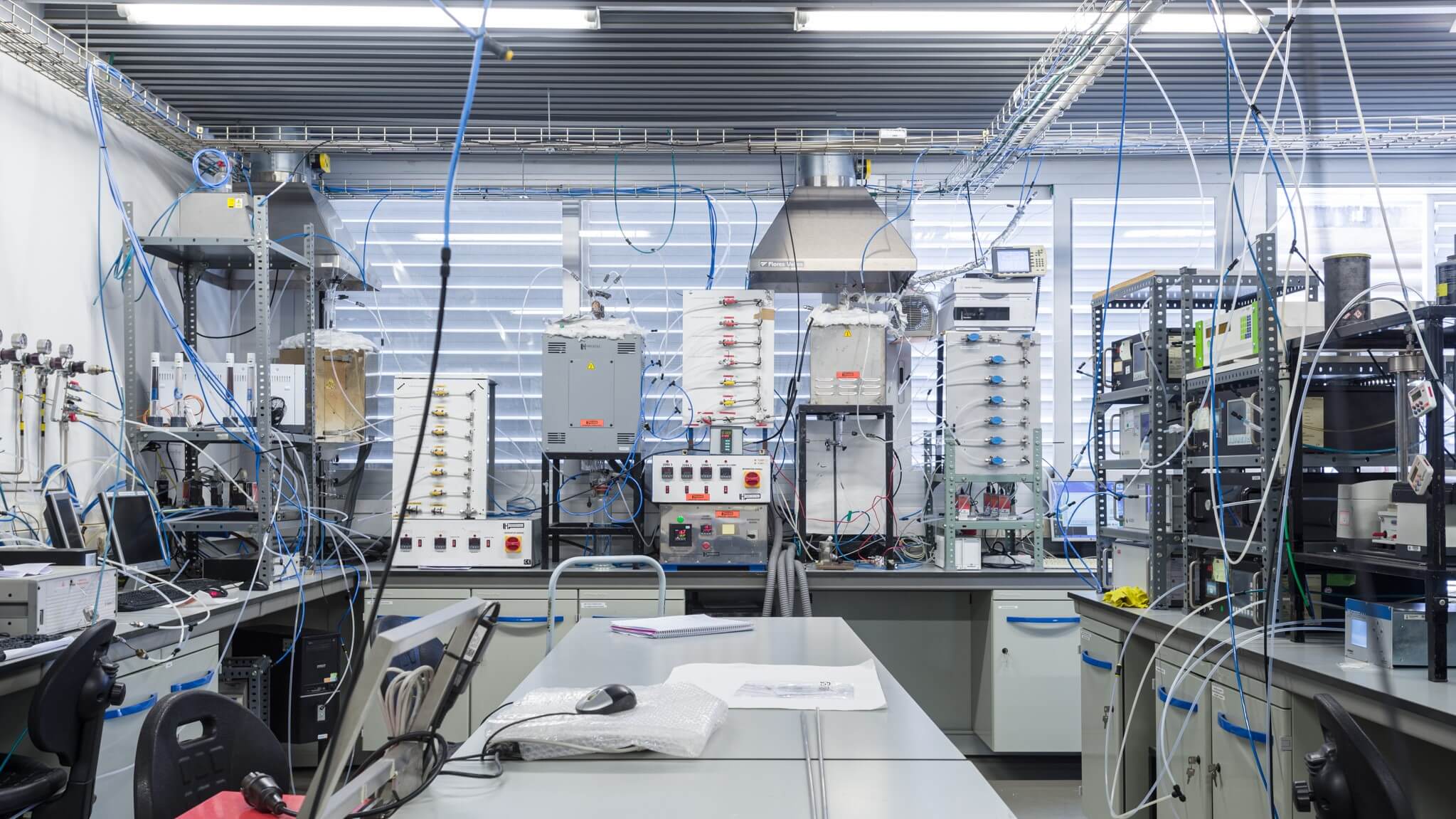Research line
Our research aims to contribute to develop environmentally friendly thermochemical processes (mainly combustion, but also gasification and pyrolysis) by means of minimizing important pollutant emissions such as NOX, SO2, soot and PAH, etc.
Our methodology includes both carefully controlled and comprehensive experiments and detailed kinetic modelling.
See our projects and publications for more info.
Minimization Of Pollutant Emissions
We are interested in developing fundamental studies carried out under well-controlled experimental conditions to study the formation and destruction of the main pollutants in thermo-chemical processes. We study NOX formation and destruction by different processes, such as reburning, SNCR or NOX diesel traps. In the case of sulfur compounds, we are interested in H2S conversion and the formation of SO2/SO3, a main pollutant in industrial processes, such as the processing of refinery gases, but also important for biogas, shale gas and sour natural gas, and in the Claus process. Soot and PAH are main pollutants generated during the conversion of various fuels. We address their formation and destruction under a variety of conditions and from different fuels. We are also interested in specific solid-material reactivity studies, such as oxidation of soot of interest for diesel engine devices or effect of metals in biomass conversion during gasification.
New Energy Carriers
Our interest deals with experimental and modelling studies on the conversion of different energy carriers, such as hydrogen, ammonia, etc., with the aim of characterizing the conversion of such energy carriers in the most environmentally friendly manner. For example, we explore the conversion of ammonia and ammonia mixtures and evaluate the possible synergies contributing to a minimization of emissions in NH3 fueled combustors.
Kinetic Modeling
We are interested in the development of comprehensive detailed kinetic models, carefully built from sets of elementary reactions and thermodynamics, to describe the conversion of fuels and the formation and destruction of pollutants. Present studies deal with NH3 and H2S conversion and their mixtures, hydrocarbons and oxygenated molecules used as biofuels, or conversion of molecules of interest for the chemical recycling of plastic wastes.
New Biofuels, Mainly Organic Oxygenates
A number of biomolecules, including alcohols, ethers, furans or carbonates are considered as biofuels or additives to conventional fuels. In this context, our aim is to achieve a comprehensive knowledge of their conversion, with the additional objective of assessing the best conditions of use from an environmental point of view. Our activities have considered many different oxygenates, such as methanol, ethanol, butanol, DME, 2,5-DMF and 2-MF, DMC, THF, THP, …


